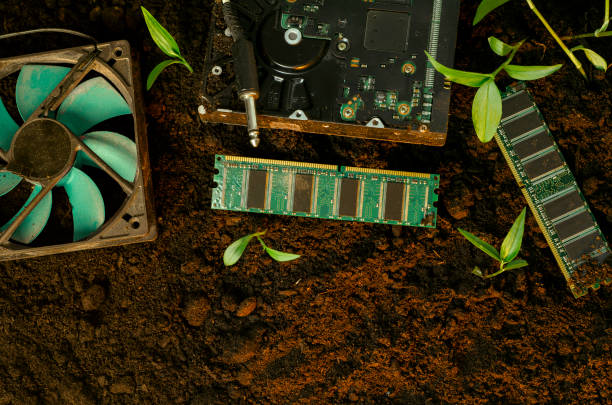
As the world grapples with the mounting challenges of electronic waste, or e-waste, there is a growing need for innovative and sustainable solutions to manage this ever-increasing problem. With the global volume of e-waste projected to reach a staggering 74 million metric tons by 2030, it is imperative to explore new avenues that leverage the power of artificial intelligence (AI) to tackle this pressing issue.
In recent years, AI has emerged as a transformative technology with the capability to revolutionize various industries. The e-waste sector is no exception, as AI-powered solutions offer tremendous potential to streamline processes, enhance recycling efficiency, and contribute to a more sustainable future.
Introducing AI to the e-waste sector holds the promise of optimizing waste management practices, reducing environmental impact, and unlocking valuable economic opportunities. By harnessing the capabilities of AI algorithms, machine learning, and computer vision systems, organizations can reimagine how e-waste is handled, recycled, and repurposed.
Potential AI-Powered Business Solutions for the E-Waste Sector:
AI-based e-waste sorting and classification:
AI algorithms and computer vision systems can be employed to automatically sort and categorize different types of e-waste, improving the accuracy and efficiency of recycling processes.
AI-driven e-waste tracking and traceability:
Utilizing AI-powered systems enables comprehensive tracking and tracing of e-waste throughout its lifecycle, ensuring proper disposal, minimizing illegal dumping, and enhancing transparency in the e-waste management process.
AI-enabled predictive maintenance:
By analyzing data from electronic devices, AI algorithms can predict maintenance needs, optimizing their lifespan and reducing the generation of e-waste.
AI-powered e-waste recycling optimization:
AI models can evaluate factors such as material composition, market demand, and recycling techniques to optimize the recycling process, maximizing efficiency and environmental sustainability.
AI-based e-waste inventory management:
AI-driven systems facilitate streamlined inventory management of e-waste materials, components, and resources, reducing waste in storage and improving operational efficiency.
AI-driven refurbishment and resale platforms:
Through AI-powered platforms, the condition of used electronics can be assessed, repair needs identified, and the refurbishment and resale of functional devices facilitated, extending their lifespan and minimizing e-waste.
AI-enabled data destruction and security:
AI algorithms ensure secure data destruction from electronic devices before recycling or disposal, safeguarding sensitive information and mitigating the risk of data breaches.
AI-driven circular economy solutions:
AI models and platforms can facilitate the transition towards a circular economy in the e-waste sector, enabling reverse logistics, remanufacturing processes, and resource recovery techniques to minimize waste and maximize the value of e-waste materials.
As the urgency to address e-waste management intensifies, embracing AI-powered solutions offers a transformative path forward. By harnessing the potential of AI, we can unlock new business opportunities, drive sustainable economic development, and pave the way for a greener future. Embracing these innovative technologies in collaboration with stakeholders, governments, and recycling facilities will be crucial to realizing the full potential of AI in e-waste management.
Remember, implementing AI solutions in the e-waste sector requires collaboration with relevant stakeholders, including recycling facilities, government agencies, and technology partners. As a matter of importance, The team at Start.Up Lounge Africa is ready to assist you with assessing the feasibility, scalability, and regulatory requirements of AI-powered solutions before implementation. Do get in touch with us at info@startuploungeafruca.com Best of luck!

